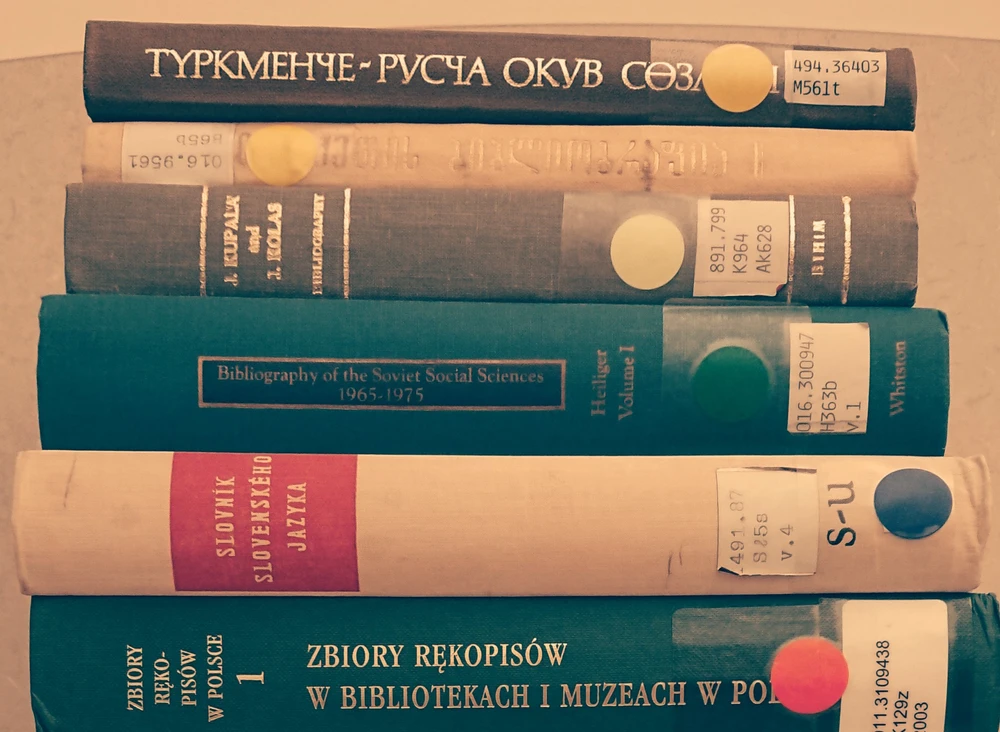
The Spring 2021 issue of the Illinois Global Institute’s newsletter featured an article concerning the planning and coordination of this semester’s Virtual Open Research Laboratory (VORL) by REEEC staff alongside the Slavic Reference Service (SRS) team. A repost of the article is below; to view the original, please see here.
Supporting Scholars Globally: REEEC and the Virtual Open Research Laboratory
REEEC Staff
For nearly fifty years, the Summer Research Laboratory on Russia, Eastern Europe, and Eurasia (SRL) has brought scholars to Urbana-Champaign to work in our Library’s amazing collections. Covid-19 canceled most travel plans, but not scholars’ desire to continue their work and develop new lines of inquiry. “We knew the need for a research community was, if anything, growing this year,” says John Randolph, Associate Professor of History and Director of the Russian, East European, and Eurasian Center (REEEC). “And thanks to Illinois’ long-standing outreach programs and continued financial support from the US Department of State, we were in an excellent position to provide it.”
Working together with its co-investigators at the Library’s Slavic Reference Service, REEEC was able to retool the SRL into a virtual format. Already answering thousands of remote inquiries a year, the SRS was able to expand its capacity to work with scholars virtually. We added scanning services from the University’s closed stacks and worked with online repositories such as Hathi Trust to expand access. When we opened an application portal for the Spring 2021 Open Research Laboratory (ORL), we were surprised by the number of applications for remote research support that they received. “The Spring ORL program was designed for 6 in-person visiting scholars,” Randolph adds. “We received over 110 applications.”
These applications came from all over the world, and from scholars at many stages of their projects and professional careers. Fortunately, SRS was able to expand its services to assist all these researchers. REEEC, meanwhile, has worked to create virtual brown-bag talks, lightning sessions, and other networking opportunities that are allowing this international group of scholars to share their ideas and insights with colleagues, in a way that breaks through Covid-era isolation. These talks also bring a diversity of knowledge and perspectives to our local community, students, and faculty. We will hear from a historian of Polish architecture after World War II; a scholar who studies citizen oversight of policing in Russia today; a student of the Russian Revolution who analyzes tableaux vivants from the period to think about its cultural history; and a political ecologist thinking about the slow death of the Aral Sea. “We weren’t sure how much scholarly programming people would want, but these events have turned out to be extremely popular,” Randolph notes.
“ORL associates have even attended our local community outreach programming, including a recent family friendly, virtual event celebrating International Women’s Day co-organized by Stephanie Porter, REEEC Outreach and Programming Coordinator, and Kim Sheahan, Assistant Director of Education at the Spurlock Museum,” said Maureen Marshall, REEEC Associate Director. Over 100 scholars turned out for the semester’s keynote event, a lecture on the rise of authoritarianism within the European Union, by the noted legal scholar Professor Kim Lane Scheppele. (This event is part of REEEC’s working group on Critical Legal Studies, led by our colleague Jessica Greenberg [Anthropology].) With a mix of local and remote scholars, the brown bag talks have drawn 20-30 participants a session. The conversations have a decidedly transnational quality, with Illinois students and scholars hearing from and helping to facilitate conversations between researchers in Russia, Belarus, Cyprus, Korea, the UK, the USA, and elsewhere. It’s been a reaffirmation of our public university’s mission in a difficult time, Marshall concludes: “It is really wonderful to see how Illinois is supporting the REEES scholarly community internationally.”